Estimated reading time: 4 minutes
The scene that greeted us as we drove out of Cape Town made it hard to believe we were in Africa. Lit up by the soft light of a September morning, the city’s surrounding mountains were dusted with snow and the vineyards that lie below them glowed with good health. My daughter and I were stunned into silence by the beauty of it all, but we didn’t dilly-dally: we had a rendezvous with sea monsters.
The southern Cape coast begins as soon as you leave the shelter of Cape Town’s False Bay. But despite the occasional sandy beach, this rocky, battered coast is a harsh one, and this outmost reach of the Indian Ocean does little justice to its tropical reputation. The clear water is electric-blue in colour and electric-freezer in temperature – these are not welcoming waters for humans to go floating in.
There’s an even greater reason for us to stick to dry land. South Africa’s coastline teems with life (16% of the planet’s coastal marine creatures live here) and so it’s no surprise to learn that some of the ocean’s biggest mammals make a living in these waters. False Bay’s seal colonies attract great white sharks that have earned global notoriety for their habit of exploding, missile-like, from the icy waters to grab their prey. But my daughter and I were looking out for even larger creatures. In the Cape’s spring months, migrating southern right whales arrive off the coast in large numbers, and our road led to the capital of Cape whale watching...
First, our scenic route meant taking a few roads less travelled and plenty of time for Dad's coffee.
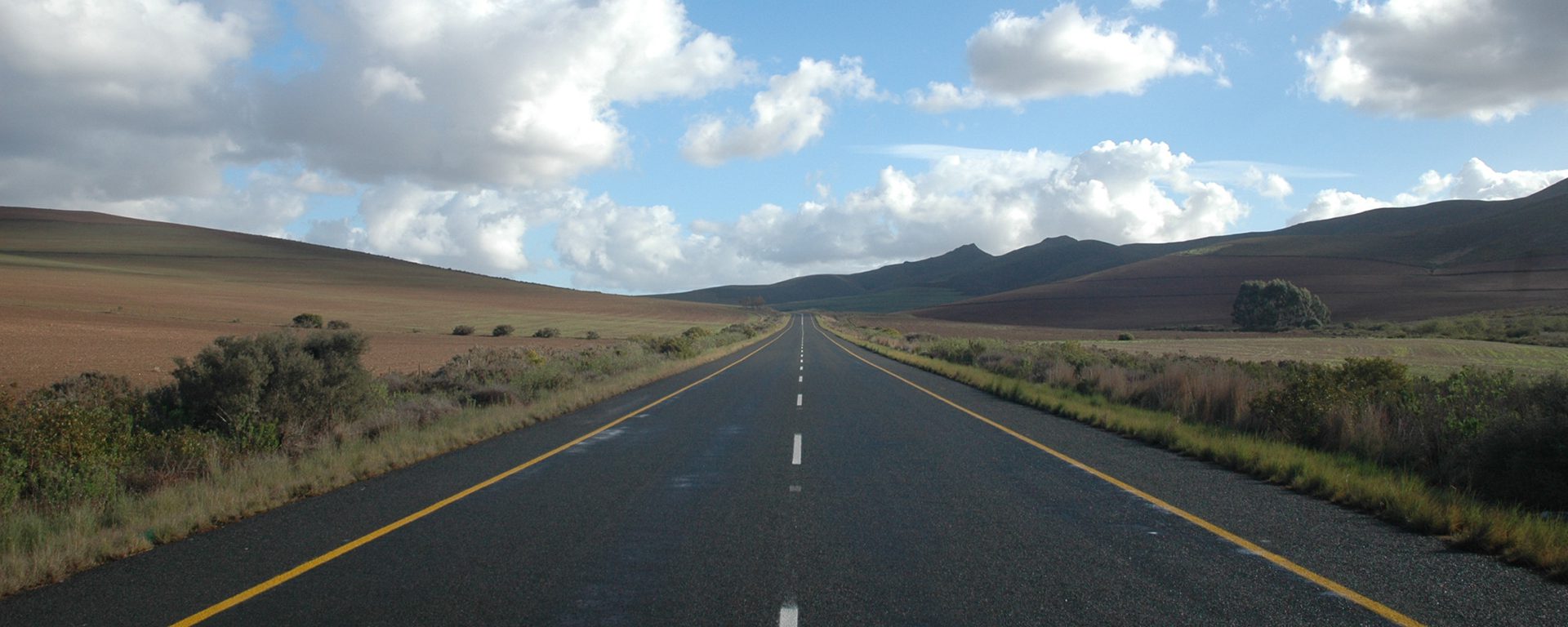
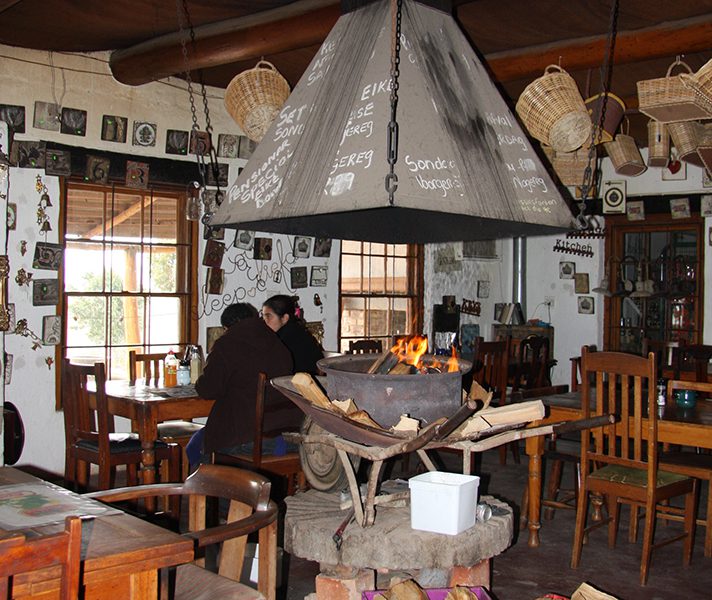
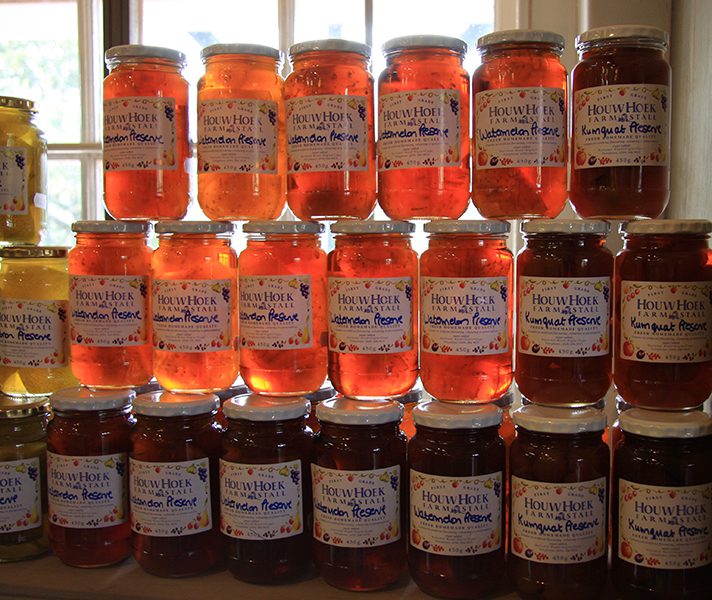
There are many reasons to enjoy a South African road trip: good signposting, plenty of easy roads and gorgeous landscapes to make your journey pleasant, but the trump card is the quintessential country farm stall. Strung along highways and byways at the sort of intervals occupied by fast food joints and gas stations in other countries, a South African farm stall is where local fresh produce and home cooking come together in a burst of flavour and old-fashioned hospitality. We pulled over for one soon after leaving Cape Town (“Stopping already?” queried my daughter) and were rewarded with the smell of fresh coffee, frying bacon and bread fresh out of the oven: is there a better combination of aromas?
An old-school breakfast was the right meal for this old-school part of the Western Cape. We were driving through the Overberg, a fertile agricultural region that supplies the world with wine and apples. Field after field rolled lazily by like a colour swatch: yellow meant canola, bright green for winter wheat, olive-green indicating patches of indigenous renosterveld, once home to rhinos and lions. A solitary Cape vulture drifted past, a reminder of how the region was once the exclusive domain of wild creatures.
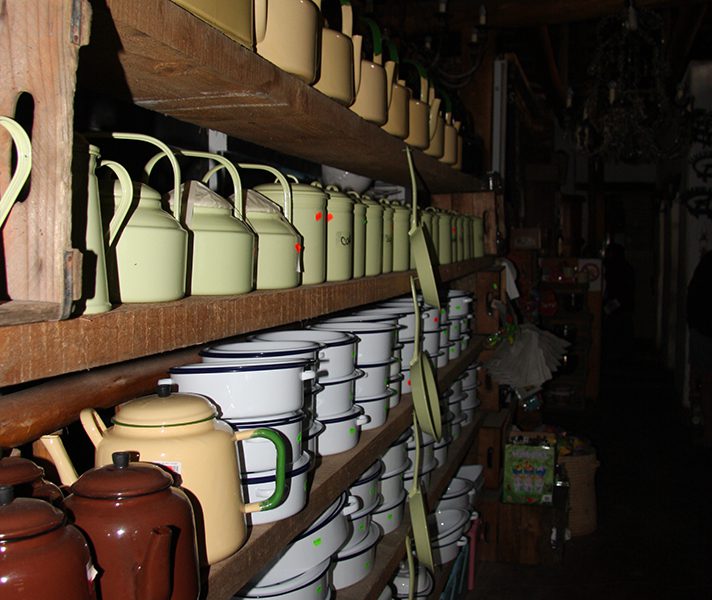
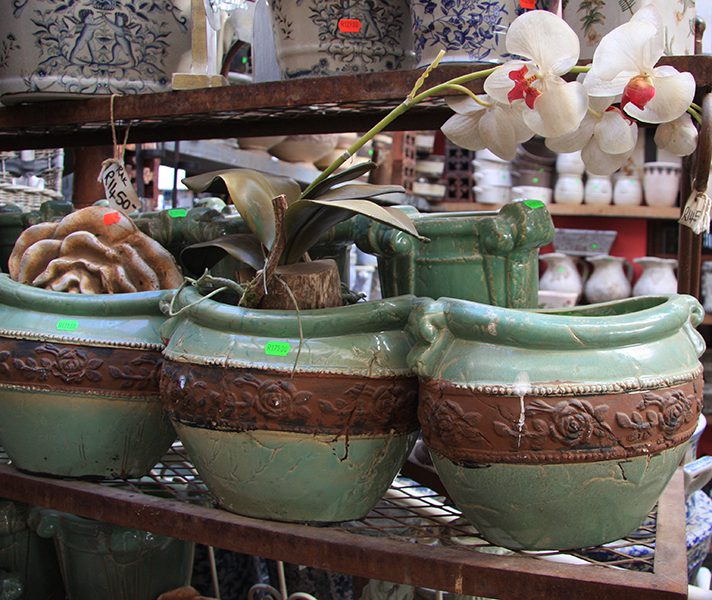
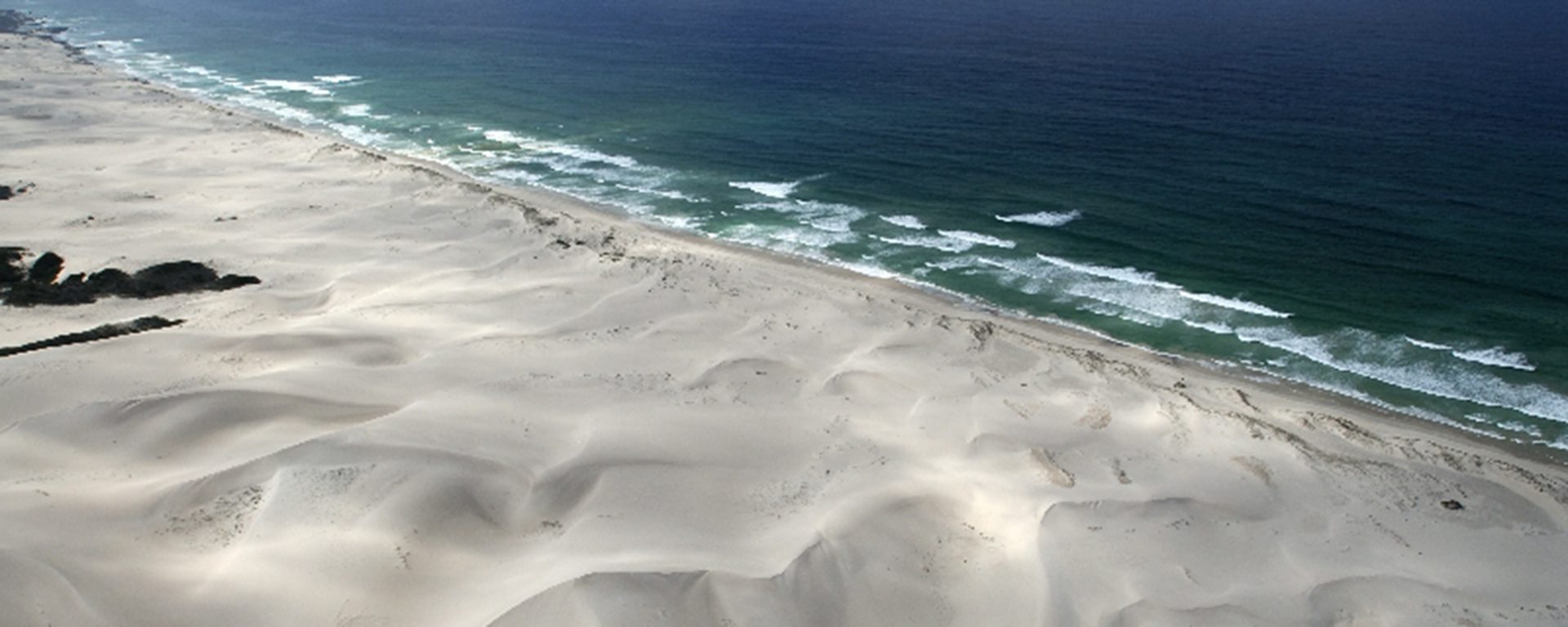
The road began to shrink, as roads do in the country, trickling down all the way to the coast to putter out at the De Hoop Nature Reserve. The orchards and wheat fields disappeared, replaced by stands of flame-coloured pincushion proteas; flocks of sheep gave way to herds of antelope and zebra. We set up our tent overlooking a great lagoon covered in water birds while yet more birds hopped at our feet and filled the air with warbling chatter. If there is a more idyllic spot on the Cape coast, I’ve yet to find it.
We like camping, but there are cosy, whitewashed cottages and suites in manor houses available in the area too. Not that we were roughing it – the campsite has only 10 sites and its shared kitchen and bathrooms are spic and span – besides, the best views are from the door of your tent. The lagoon in front of you hums with activity throughout the day, but it’s worth getting up early to watch the lagoon’s wildlife wake up to a luminous sunrise.
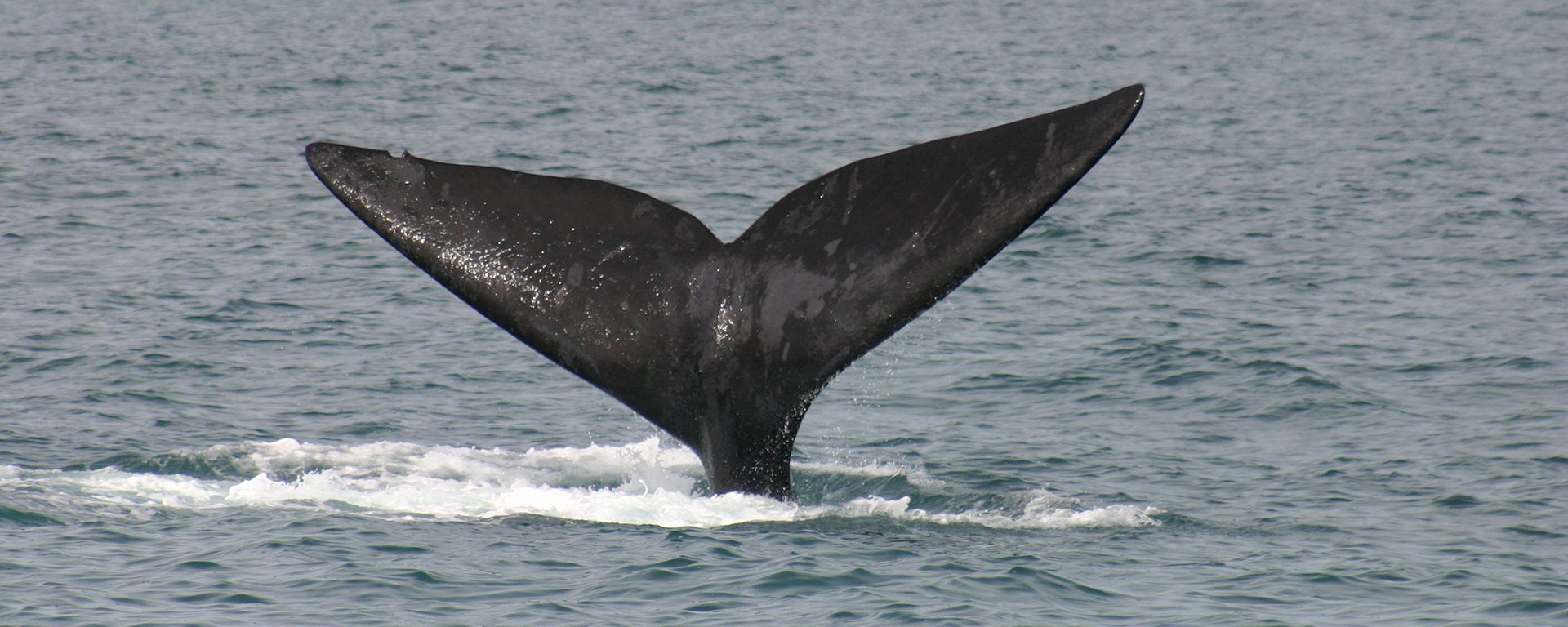
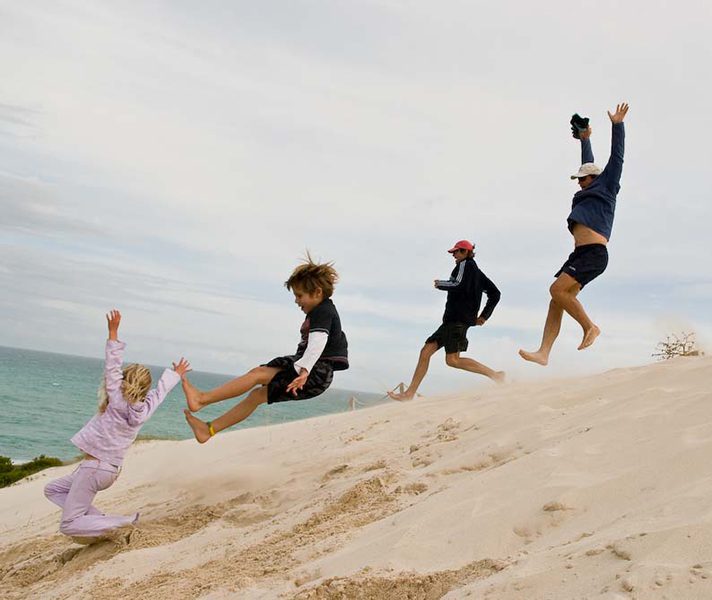
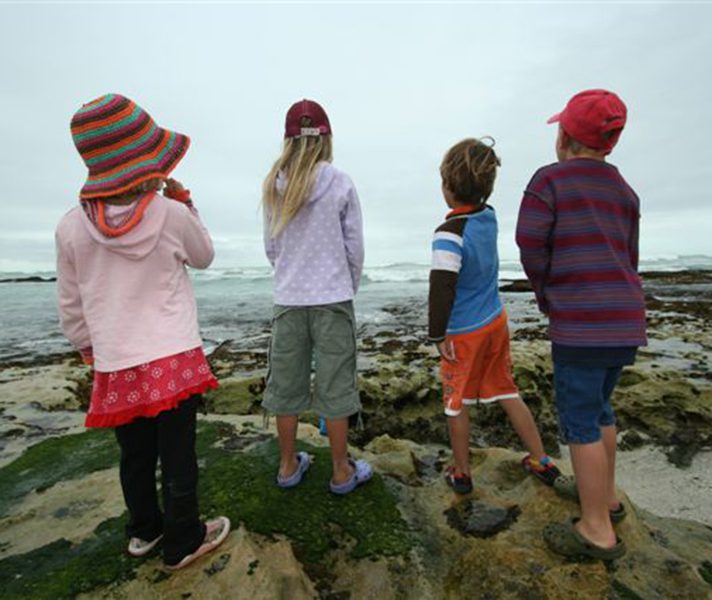
The next morning found us on De Hoop’s famous sand dunes, blinding-white in the spring sunshine and towering over a wave-thumped beach. In the ocean below us, in loose family groups of up to a dozen individuals, southern right whales swept slowly along the shore from east to west. We sat in stunned silence for the second time in as many days: this is a mammal that once teetered on the brink of extinction.
Their name – southern right whales – is sadly indicative of their value as a commodity. Relatively common, huge and slow moving, they were the ‘right’ whale to hunt. They even floated after being killed. Whalers from across the world plundered the southern Atlantic and Indian oceans for two relentless centuries and the whales steadily vanished from our oceans.
In a rare and important conservation success story, the whales return – as they always do – to mate and give birth in the Cape’s shallow waters in greater numbers than before. The area is now a protected marine reserve. My daughter and I gave up trying to count them. Baby whales stuck close to their mothers, older ones meandered and flapped a fin from time to time (‘waving’ – my daughter exclaimed) and then a great male reared out of the ocean only to crash back down in a shower of foam.
We gave up trying to count them and stay there, watching the whales for a long time.
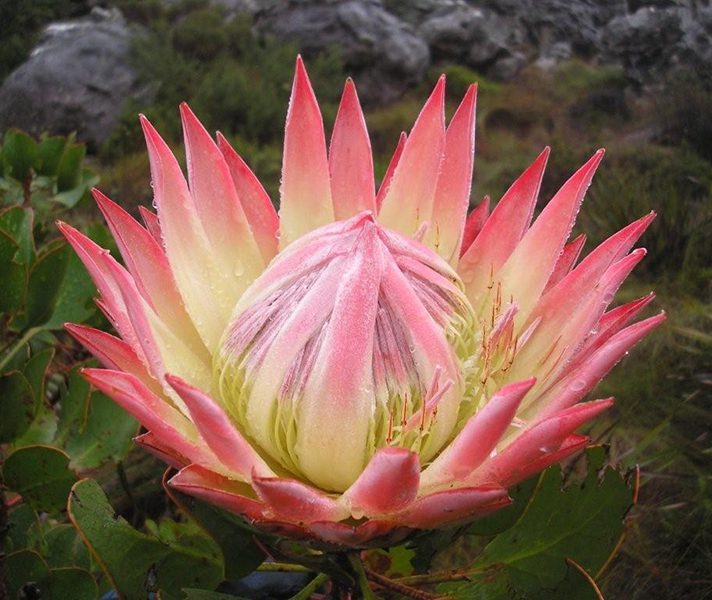
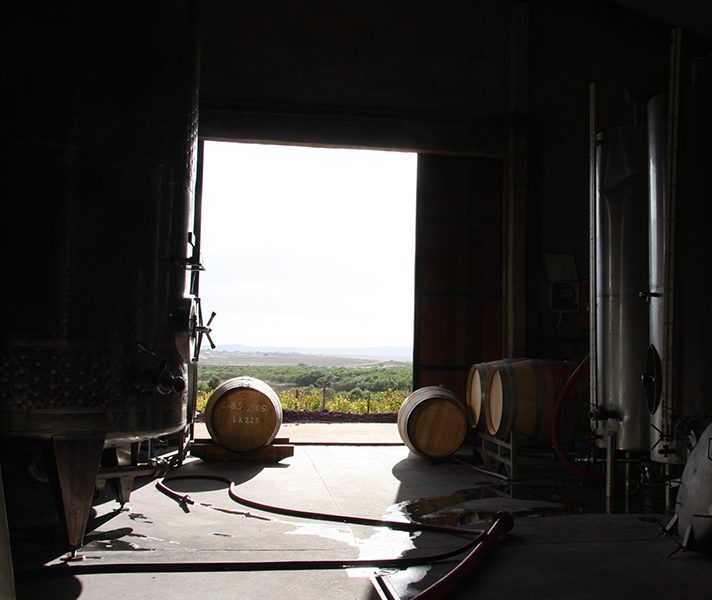
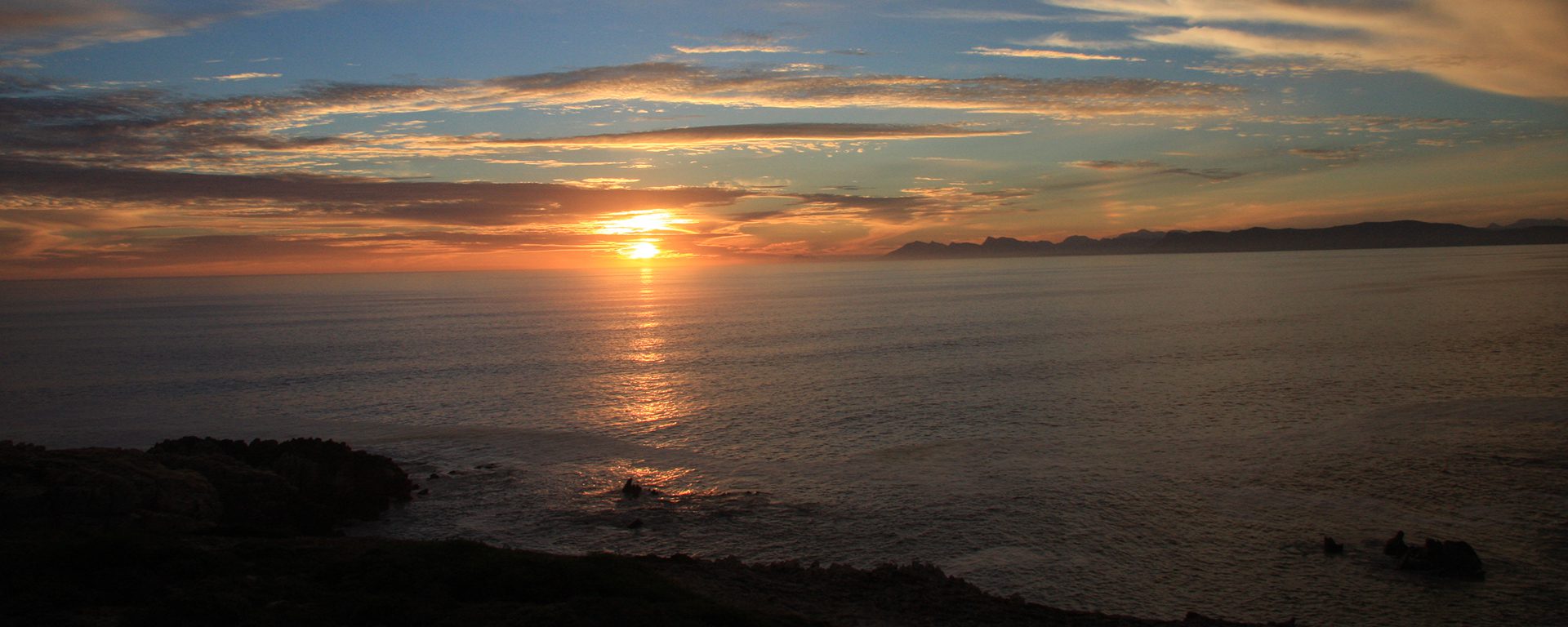
It’s a region where little has changed for scores – if not hundreds of years. To cross the Breede River we had to use a pontoon bridge, hauled across the chocolate-coloured water by old-fashioned manpower. Making our way back to the highway, we stopped to watch tortoises cross dusty roads and blue cranes – South Africa‘s national bird – flying overhead in family groups, honking at one another. Back onto the road well-travelled, the spell was broken by the swoosh of passing traffic, and we turned quietly for home, lost in thought and imagery. It wasn’t long before the welcoming sight of a farm stall appeared ahead of us. I slowed down; “Stopping already?” asked my daughter. The way back home was suddenly a lot better.
Read more about a Whale Coast holiday, or check out our recommended Whale Coast, Overberg & Garden Route self-drive trips below:
Cape Explorer Eco Holiday – Reduce your travel footprint & combine the Cape’s natural wonders with community & conservation projects on this Fair Trade-aligned tour.
Family Cape Town, Winelands and Garden Route – Explore the premier attractions along South Africa’s southern coast on this 16-day self-drive tour.

